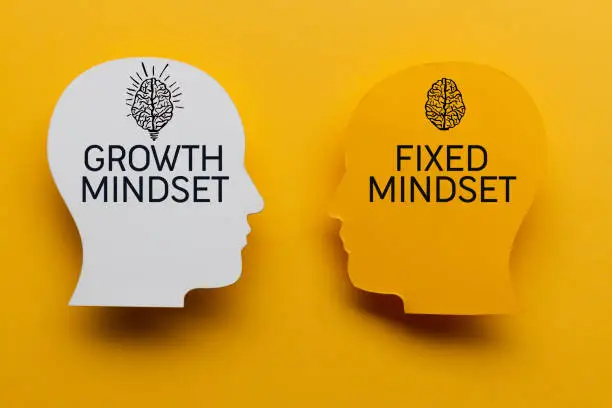What are money blocks? Overcome them today and stop the self-sabotage!
What are money blocks? Do you ever get the feeling that your hard-earned money just seems to slip away or that it is never enough? Or perhaps you often find yourself caught in a cycle of financial self-sabotage, where your dreams of achieving true financial security never quite materialize.
If these situations ring a bell, you might be grappling with a common issue known as “money blocks.” In this article, we’ll delve into the concept of money blocks, why they’re significant, and, most importantly, how you can break free from their influence.
So, let’s dive in…
Introduction

Definition of Money Blocks
Money blocks are those sneaky mental barriers that keep us from achieving our financial goals. They come in various shapes and sizes, from a fear of scarcity to limiting beliefs about wealth, and they can be real dream crushers. But don’t worry, you’re not alone in this struggle.
Understanding your money blocks is a critical step toward building a healthier relationship with your finances. Once you can recognize these obstacles, you can start dismantling them, paving the way for financial freedom.
Common Types of Money Blocks

Fear of Scarcity
This one is a classic. It’s that constant nagging worry that there’s just never enough money to go around.
Fear of scarcity is a pervasive money block that can have a profound impact on how you make financial decisions. When you’re constantly worried that there won’t be enough money to cover your needs or unexpected expenses, you might find yourself making decisions out of fear rather than careful consideration. This can lead to impulsive spending, reluctance to invest, and an overall inability to plan for the future.
Recognizing the scarcity mindset is the first step toward conquering it.
Awareness is key, as it allows you to catch yourself when you’re falling into old patterns and empowers you to take proactive steps toward change. Overcoming this money block involves recognizing when fear is driving your financial choices and learning how to reframe your thoughts and actions to make more informed decisions.
Here are the steps to follow:
- Recognize and Acknowledge: Start by identifying when fear influences your financial decisions.
- Reframe Your Mindset: Shift your perspective from scarcity to abundance. Focus on opportunities and solutions rather than limitations.
- Create an Emergency Fund: Building a financial safety net can ease worries about unexpected expenses.
Limiting Beliefs About Wealth

We’ve all heard these myths about money, right? Things like “Money is the root of all evil” or “Rich people are greedy.” These myths are like old, dusty cobwebs that hang around in your mind, ready to trip you up.
These beliefs can sabotage your financial success by making you feel guilty about wanting more money or subconsciously holding you back from pursuing opportunities.
When you believe in these myths, they become self-fulfilling prophecies that sabotage your financial success.
Challenging these beliefs is a vital step in breaking free from this particular money block.
Here are the steps to follow:
- Challenge Negative Beliefs: Confront and debunk myths such as “Money is the root of all evil” to shift your perspective.
- Educate Yourself: Learn about the positive impact wealth can have on your life and the lives of others.
- Set Clear Financial Goals: Establish specific, measurable, achievable, relevant, and time-bound (SMART) goals to create purpose and direction.
Self-Worth and Money

Your self-worth and your financial prosperity are intimately connected. When you don’t believe in your own value and worthiness, it can lead to a cycle of self-sabotage in your financial life. Low self-esteem may cause you to settle for less in your career, avoid asking for raises or promotions, or even undersell your skills and talents.
Identifying and addressing low self-worth can be challenging but incredibly rewarding.
Here are the steps to follow:
- Boost Self-Esteem: Work on building self-confidence through self-reflection and self-improvement.
- Negotiate for Your Worth: Don’t settle for less in your career; advocate for fair compensation and opportunities.
- Invest in Personal Development: Invest in acquiring new skills and enhancing your talents to increase your earning potential.
Financial Trauma

Past financial trauma can leave lasting scars on your financial psyche. Whether it’s bankruptcy, foreclosure, or a history of financial instability, these experiences can create deep-seated fears and anxieties surrounding money.
Here are the steps to follow:
- Seek Professional Help: Consult a therapist or money coach to address emotional wounds related to past financial trauma.
- Financial Education: Educate yourself about money management and financial stability to regain control.
The Role of Mindset in Overcoming Money Blocks

Shifting from a Fixed to a Growth Mindset
A fixed mindset is a belief that your abilities, intelligence, and talents are static and unchangeable. When it comes to money, this mindset can lead you to think that your financial situation is beyond your control, and that you’re limited by your current circumstances.
A growth mindset, on the other hand, is the belief that you can develop and improve your skills and intelligence through effort and learning. When applied to finances, it means acknowledging that you can learn, adapt, and improve your financial situation over time.
The Power of Positive Affirmations
Positive affirmations are short, positive statements that you repeat to yourself regularly. They’re designed to challenge and replace negative beliefs or self-doubt with more empowering thoughts.
When it comes to money, affirmations can help reshape your attitudes and beliefs about your financial abilities and worthiness.
Visualization Techniques for Financial Success
Visualization involves mentally picturing yourself achieving your financial goals and experiencing the emotions associated with that success. It’s a potent technique for reprogramming your mind and increasing motivation.
Visualization with Goal Setting: Never underestimate the power of aligning your visualization efforts with your financial goals. Visualization is most effective when it supports your broader financial plan.
By understanding the role of mindset in overcoming money blocks and taking steps to empower yourself with a new mindset, you’ll not only develop a more positive and growth-oriented attitude towards your finances but also build the mental resilience necessary to tackle any financial challenges that come your way. These mindset shifts are essential components of your journey toward financial freedom.
Practical Strategies to Overcome Money Blocks

Setting Clear Financial Goals
Alright, think of your financial goals like a roadmap. Short-term goals are like those fun pit stops along the way, such as saving for a weekend getaway or paying off your credit card debt. Long-term goals, though, are like your ultimate destination – think buying a house, retiring in style, or sending your kids to college.
But here’s the kicker: knowing the difference between short and long-term goals helps you prioritize your spending and saving. It’s like deciding whether to splurge on a fancy dinner now or save up for an epic vacation later.
Ever heard of SMART goals? They’re like your secret sauce for reaching your money dreams. SMART stands for Specific, Measurable, Achievable, Relevant, and Time-bound. These are like the ingredients that turn your vague wish into a concrete plan.
For instance, instead of saying, “I want to save money,” you’d say, “I want to save $5,000 for a down payment on a house in three years.” See how it’s more specific, measurable, and time-bound? SMART goals give you a clear path to follow, like a treasure map for your financial success.
Creating a Budget and Financial Plan

Budgeting can feel about as exciting as watching paint dry, but trust us, it’s your money’s best friend. Start by keeping tabs on your income (the money you make) and your expenses (the money you spend).
Imagine it like this: your finances are a wild horse, and your budget is the reins that help you steer it in the right direction. Knowing where your money is coming from and where it’s going is key to staying on course.
Saving money is like planting seeds for your financial future. It’s setting aside a piece of the pie for things like emergencies, vacations, and retirement. But here’s the game-changer: investing.
Investing is like giving your money a turbo boost. It’s like saying, “Hey, don’t just sit there – go out and make more money!”
Investing can grow your wealth faster than just saving, and it’s not as scary as it might seem. There are different strategies for different goals and risk tolerances, so you can choose what works best for you.
Seeking Professional Help

All right, sometimes you need a financial wizard in your corner. That’s where financial advisors come in. Think of them like the Yoda of your financial journey. They can help you navigate tricky money situations, plan for big life events, and make smart investment choices.
Just like you’d call a handyman for a leaky faucet, you can call a financial advisor for your money matters. They’ve got the knowledge and experience to help you make informed decisions.
Now, let’s talk about the emotional side of money. If you’ve got deep-seated money blocks or traumas (and hey, we all do), consider talking to a therapist or money coach. They’re like the emotional support squad for your finances.
These professionals can help you work through your money baggage, like those feelings of scarcity, limiting beliefs, or past financial traumas. They’re here to help you heal and move forward, kind of like a personal trainer for your financial mindset.
These are like the tools in your financial toolbox, they can help you overcome those money blocks and set you on the path to financial freedom. Remember, it’s not a sprint; it’s a journey, and you’re well-equipped to conquer it!
Tools and Resources for Further Assistance

Books, Podcasts, and Blogs on Money Mindset
You know what’s cool? Learning from experts and getting the inside scoop on mastering your money mindset. That’s where books, podcasts, and blogs on money mindset come into play.
There are some fantastic authors, podcast hosts, and bloggers out there who’ve made it their mission to help you reshape your relationship with money. They’ve got insider tips and real-world advice on everything from understanding your money blocks to practical steps for conquering them.
So, grab a book, plug in your headphones, or start reading those blogs – it’s like having a personal money mentor in your pocket.
If you need a bit more structure, there are online courses and workshops that come in handy. They’re like your crash course in becoming a money master.
You can find courses on budgeting, investing, and even tackling specific money blocks like fear of scarcity or self-worth issues. Plus, you’ll often get expert guidance and actionable steps to level up your financial skills. Think of these courses as your own personal financial boot camp.
Let’s not forget the power of community. Joining support groups and communities of like-minded people can be a game-changer.
Imagine having a squad of folks who get what you’re going through and can offer advice, share experiences, and provide a much-needed morale boost. These groups can be online or in your local community – wherever you feel most comfortable. It’s like having a team to cheer you on as you tackle your money blocks.
Conclusion

All right, let’s rewind the tape a bit and recap the essential nuggets of wisdom we’ve uncovered:
- Money blocks are those sneaky mental roadblocks that can trip us up on our financial journey.
- The first step in conquering them is recognizing and understanding them.
- Shifting your mindset from limiting beliefs to abundance thinking is crucial.
- Practical strategies like setting clear financial goals, budgeting, and seeking professional help are like your tools to dismantle those blocks.
Here’s the exciting part – you’re now equipped with knowledge and strategies to kick those money blocks to the curb. The journey towards financial freedom starts with a single step. Whether you’re just starting out or looking to level up your financial game, there’s no time like the present.
Call to Action: So, here’s your challenge: Take one actionable step today towards mastering your money. It could be setting a specific financial goal, starting a budget, or researching a local financial advisor. Remember, every small step counts, and you’re on your way to financial freedom.
Alright, let’s leave you with some parting thoughts. Overcoming money blocks is a journey, not a destination. It’s like climbing a mountain – challenging but incredibly rewarding.
Remember, you have the power to shape your financial future. Your mindset can be your greatest asset or your biggest obstacle. You’ve learned how to identify and tackle those money blocks, and you have a whole arsenal of resources at your disposal.
So, embrace this journey with determination and optimism. When you believe in your ability to overcome money blocks and build financial prosperity, you’re already halfway there.
Financial freedom isn’t a far-off dream; it’s a destination within reach. Keep learning, growing, and taking those steps forward, and you’ll find yourself on the path to financial freedom before you know it.
Now, go out there and start rewriting your financial story – you’ve got this!

Hi there! My name is Madhavi. Newgrowthzone is all about reaching your full potential. If you are interested in getting out of your comfort zone and reaching for your dreams, keep reading!





